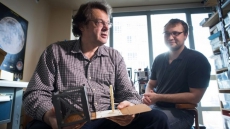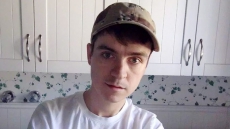VANCOUVER — A toxin was the cause of death for two beluga whales at the Vancouver Aquarium last November, but the exact substance couldn't be identified.
The aquarium announced the conclusion of a five-month investigation Thursday saying that an investigation also determined the toxin was likely introduced by food, water or through human interference.
The belugas, 21-year-old Qila and her mother, 30-year-old Aurora, died nine days apart last November from what officials said was a mysterious illness.
The aquarium's head veterinarian, Dr. Martin Haulena, said in an interview that the death of the belugas was devastating for staff and the public.
"It's like when you lose a close family member and you go through this classic mourning syndrome," he said, adding that the final results of the investigation have helped bring closure to the incident.
Haulena said the toxin was likely introduced to the whales in the weeks or days leading up to their deaths.
It's not uncommon for a toxin to be difficult or impossible to identify, he said, because it could have been metabolized quickly by the animals, leaving the substance undetectable.
Despite the uncertain result, Haulena said the investigation has helped staff improve the safety of the other mammals in their care.
The facility currently houses three other cetaceans — a false killer whale, a Pacific white-sided dolphin and a harbour porpoise.
Staff were concerned at around the time of the deaths that the other animals were at risk, Haulena said, but several risk factors highlighted in the investigation have since been addressed.
The aquarium said in a statement that is has taken several steps to protect the remaining animals including enhanced food screening, overhauling its water treatment systems and real-time testing of the circulating water.
The aquarium said it is also significantly updating its security to monitor perimeter access and reduce potential threats of human interference.

Haulena said there is no evidence anyone intentionally harmed the belugas and they're addressing every possible risk equally.
"In the absence of getting a specific toxin identified, you can't really say one thing or one general area is more of a risk than others," he said.
Biological samples collected in the investigation are being kept on file for future tests in the event new techniques or ideas to determine what happened are developed, he said.
The cost of the investigation was about $100,000, Haulena said.
The future of whales and dolphins being held at the aquarium remains uncertain after the Vancouver Park Board voted last month to ask staff to create a bylaw that would prohibit the importation and display of cetaceans at the facility.
In addition to the three cetaceans that remain at the facility, the aquarium had ongoing plans to expand its beluga conservation program.

Aquarium CEO John Nightingale announced in February that the facility was moving ahead with developing its Arctic exhibit that would house three to five non-breeding beluga whales in a larger habitat, with the intention of phasing out the program by 2029.
At the time, Nightingale said the work the aquarium does with this vulnerable species is critical and as a marine science centre, they believe they have an obligation to continue their research and conservation efforts.
Haulena said a lot of money has already been spent on the expansion, but following the park board decision, he's not sure about the program's future.



